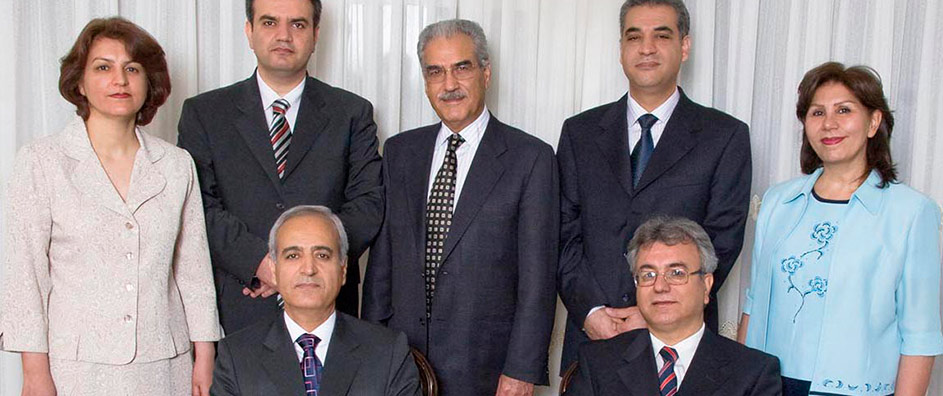 More than five years ago, the government of Iran arrested and imprisoned the seven Iranian Baha’i leaders known as the Yaran (which means “friends” in Persian). Those seven prisoners, who committed no crime other than being Baha’is, have written a moving letter to President Hassan Rouhani, commenting on his proposed “Charter of Citizen’s Rights.”
More than five years ago, the government of Iran arrested and imprisoned the seven Iranian Baha’i leaders known as the Yaran (which means “friends” in Persian). Those seven prisoners, who committed no crime other than being Baha’is, have written a moving letter to President Hassan Rouhani, commenting on his proposed “Charter of Citizen’s Rights.”
During his campaign for election earlier this year, President Rouhani promised such a Charter, saying it would aim to end discrimination on the basis of race, sex or religion. A draft version of that Charter was posted to a government website in Persian on 26 November 2013, giving Iranian citizens 30 days to offer comments on it.
The seven are currently more than five years into 20-year prison sentences on wrongful charges related solely to their religious beliefs and practice, the longest sentences of any current prisoners of conscience in Iran. The text of the letter – signed by the seven, whose names are Fariba Kamalabadi, Jamaloddin Khanjani, Afif Naeimi, Saeid Rezaie, Mahvash Sabet, Behrouz Tavakkoli, and Vahid Tizfahm – is given below in its entirety:
Your Excellency, Dr. Hassan Rouhani,
In the life of every nation there are moments of profound significance, when seemingly simple actions can turn the tide of history, when age-old misunderstandings can begin to be resolved, and when a new chapter in the destiny of its people can begin. Your Excellency’s recent public call for participation in a common discourse about the rights and responsibilities of citizens has kindled in hearts the light of hope that such a moment may have arrived for the people of Iran and for the destiny of this sacred land. Appreciating this invitation, we are impelled by a moral duty towards our homeland, and especially by a deep concern for the youth of our country, to add our voice to this significant discourse.
We take this action from within our prison cell, notwithstanding the considerable obstacles in our path, as a band of law-abiding citizens who more than five years ago were arrested and have since suffered imprisonment simply for our efforts to manage the internal affairs of the Baha’i community of Iran. We write this letter at this critical and decisive juncture lest history should judge us harshly as having failed in our duty.
Dr. Rouhani, Your Excellency,
Although the sole fact of demonstrating an interest in reviewing and upholding the rights of the individual is in itself highly significant, we find it necessary here to state emphatically that, in our view, the oneness of all peoples and their fundamental liberty are not merely civil and legal constructs-they are spiritual principles whose source is the one Divine Creator, who made all humankind from the same stock. The people of Iran, justifiably, wish to prosper and flourish in their individual and collective lives. They wish to see their children advance, their youth tread the path of progress, and their nation enjoy a state of peace and tranquility. Yet, surely, none of these aspirations can be accomplished unless social and legal conditions make it possible for all the constituent elements of society to be treated equally and well, for all individuals to be accorded their basic human rights, and for no one to be subjugated and oppressed by reason of their ethnicity, gender, religious belief, or any other distinction.
The present discourse on the rights of citizens centers on a charter currently being drafted, yet we believe that, beyond seeking comment about the contents of that document, your invitation is an opportunity for us all to reflect on the state of our country and consider the character of the society in which we wish to live. For such a reflection to be effective, it seems essential that we should first ask ourselves searching questions about the state of our society and the environment in which we wish to raise future generations. We must look deep into our hearts. Given that our land has suffered every kind of prejudice, discrimination, aggression, and social ill-a suffering whose consequences are apparent in all departments of our nation’s collective life-we must ask ourselves: what are truly the most vital principles that would fulfill our highest aspirations for our nation, and what are the means to establish these principles? How do we respect the nobility of every individual? How will a constructive environment be fostered in which all the different constituent parts of society can thrive? What are the necessary conditions that would enable women to contribute their full share? How do we wish children to be treated? How do we enable minorities-ethnic, religious, or other-to make their contribution to the betterment of society shoulder to shoulder with others? What is to be done so that differences of views and beliefs are properly respected? How do we eradicate violence from our society? How do we guarantee the right to education for all? These are among the thoughts that should inform us as we search for the principles that must guide our society and shape the formulation of the rights of its citizenry.
Your Excellency,
Seeking the views of the various elements of society about the future can, of course, represent a first step towards building a progressive country, but what is of foundational importance is that the nation’s school curriculums be reviewed to ensure that the soil is prepared in which a progressive culture may take root, a culture established upon fundamental principles such as the nobility of humankind and the equality of all before the law.
To document the citizens’ rights and enshrine them in a charter may well be an important initiative in the course of a country’s development, but if such a charter is not carefully drafted or, worse still, if it is deliberately crafted as a means to exclude, it could be used as a tool for justifying discrimination and perpetuating oppression. Therefore, beyond the benefits that accrue from a free and open discourse and appropriate educational programs, it is imperative for the protection of the people’s rights, first, to enact laws that explicitly protect these rights, and, second, to fashion the necessary structures that prevent an arbitrary interpretation of the law. The dismissal of thousands of Baha’i citizens from government posts, the execution of more than two hundred innocent Baha’is, the expulsion of thousands of students from universities, the sentences handed down during the past eight years to hundreds of Baha’is-indeed, what has happened in our own case, and the judicial process that led to a twenty-year jail sentence for each one of us-are all salutary lessons that illustrate our point and amply demonstrate the need for safeguards in how the law is applied. In all the years that we had the honor to serve the Baha’i community of Iran, the authorities had full knowledge of our involvement in this work. Then, one day, as a result of warped thinking and on the whim of certain individuals in authority, it was decided that our service should be deemed illegal, and consequently, we have spent nearly six years behind bars.
Your Excellency,
If no effective solutions are devised, under conditions where individual rights can be trampled upon so arbitrarily, who can be certain that the fate that has befallen us today will not befall him tomorrow.
In closing, we wish Your Excellency every success in your sincere service to the great nation of Iran in the path of justice, freedom, and equality.
Respectfully,
Vahid Tizfahm, Jamaloddin Khanjani, Saeid Rezaie, Mahvash Shahriari, Behrouz Azizi-Tavakkoli, Fariba Kamalabadi, Afif Naimi


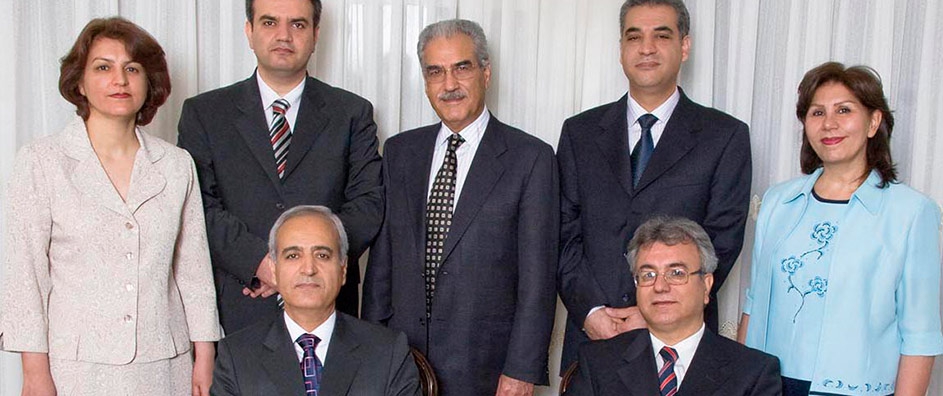
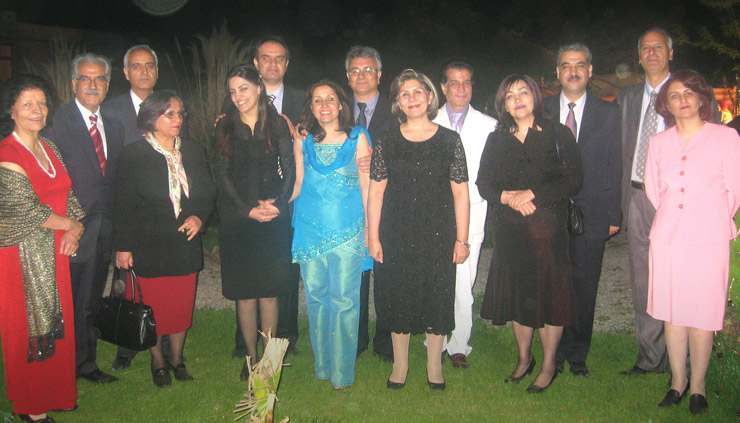
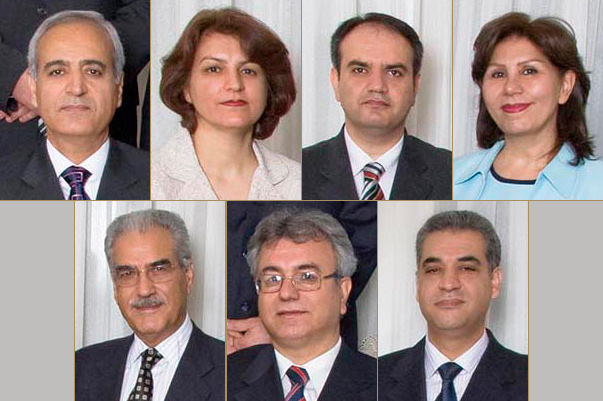

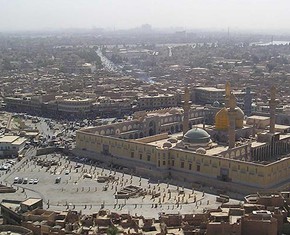

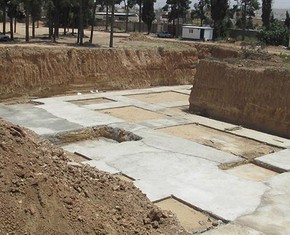









Comments
Sign in or create an account
Continue with Googleor